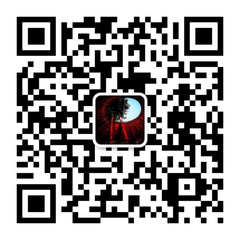2018年7月7日-10日,由MESI(音乐、教育和社会涵盖)研究组与ICTM(国际传统音乐学会)应用民族音乐学研究组联合举办的第二次研讨会将在中央音乐学院召开。
本次会议主题包括:
1. 社会中的权力结构与音乐教授以及正式学习的教学机构之间的关系( Relationships between power structures in society and music teaching and pedagogy institutions of formal learning);
2. 社会中的权力结构与非正式的学习以及私人教授的音乐传播实践之间的关系(Relationships between power structures in society and music transmission practices of informal learning and private teaching);
3.音乐所创造出的、并被不同的社会人群所践行的“植入的价值”如何被文化的、社会的、政治的、和经济的动向所塑造,这一方式大受认可和褒奖(How cultural, social, political and economic dynamics shape the embedded value music(s) created and performed by different social groups of people is largely recognized and awarded);
4.音乐如何从历史上和习俗上被赋予“‘内禀的’/袭承的价值”的概念,这一问题仍然存在于众多社会中和学术环境中,塑造着音乐的流派/风格以及教授方式——可能包括在学术机构、音乐文凭、资助机会等之中,也可能排除于它们之外(How the concept of “intrinsic”/inherited value historically and customarily attributed to music still persists in a number of societies and academic environments, shaping the genres/styles of music and teaching methods that are included – or excluded – from academic institutions, music degrees, funding opportunities etc.)。
论文发表时间为20分钟,提交的摘要需为250-300字的英文。在特殊情况下,其他语言将被考虑。我们也欢迎小组发言,发言时间将依据个案决定。其他形式的提交(如视频)不超过5分钟。考虑到路程问题,少部分的Skype远程发言将被允许。
请提交以下内容至:mesistudygroup@gmail.com
1.250-300字的论文摘要,也可以是工作坊及有关活动的计划;
2.单独的一段个人简介,强调相关的活动、工作以及出版物;
3.个人单位与联系方式。
论文摘要提交截止日期:2017年12月1日
回执(接受、修改和拒绝) :2018年1月中旬
Call for Papers:
2nd Symposium of the MESI (Music, Education and Social Inclusion)
ICTM Study Group
The MESI Study Group, recently approved by the Executive Board of the ICTM, will be holding its 2nd Symposium jointly with ICTM Study Group on Applied Ethnomusicology at the Central Conservatoire of Music in Beijing, China, from 7-10 July 2018.
The previous MESI symposium was held at SOAS, London (UK), on July 20th and 21st 2017 and it gathered more than 40 academics from all over the world; its main focus revolved around the intersection between music, education and social inclusion, focusing on historically excluded groups such as women and girls, ethnic minorities, those with vulnerabilities including the disabled and groups marginalized by other factors who have been systematically excluded or under-represented in education. Presentations advanced how music practices and music education pedagogies reflect, and indeed transmit and perpetrate, wider social inequalities and discriminatory norms, in ways that shape society at large beyond schools and academic institutions.
In Beijing, the MESI Symposium intends to develop further this ongoing discussion and delve deeper into the interrelationship between biases and discriminations at the societal level and those present in music education, institutions and transmission practices.
The Study Group is informed and makes particular reference to publications and
guidelines produced by high-level international organizations, such as:
• UNESCO’s Policy Guidelines on Inclusion in Education of 2009, which advanced the need to reform current approaches to support and welcome diversity in order to develop more inclusive societies by taking a holistic approach to education reform, and which also stressed the importance of developing effective strategies for the
attainment of the Millennium Development Goals.
• The United Nations’ 2016 Report on the World Social Situation, Leaving no one behind: the imperative of inclusive development, which highlighted how no single actor or set of policies could singlehandedly promote social inclusion, and which drew attention to the importance of developing and promoting inclusive institutions where exclusionary attitudes are challenged in order to respond to the call to leave no one behind.
Papers that explore the intersection of music, education and social inclusion are welcomed, particularly those with a focus on how, in a number of societies globally, academic discourse and institutions continue to be shaped by and use methods inherited from European and North American music education systems, creating further layers of socio-cultural exclusions and discriminations perpetuated through their educational institutions.
In particular, contributions are encouraged to revolve around the following topics:
- Relationships between power structures in society and music teaching and pedagogy institutions of formal learning
- Relationships between power structures in society and music transmission practices of informal learning and private teaching
- How cultural, social, political and economic dynamics shape the embedded value music(s) created and performed by different social groups of people is largely recognized and awarded.
- How the concept of “intrinsic”/inherited value historically and customarily attributed to music still persists in a number of societies and academic environments, shaping the genres/styles of music and teaching methods that are included – or excluded – from academic institutions, music degrees, funding opportunities etc.
Papers should be 20 minutes long; abstracts should be from 250 to 300 words in length and written in English – proposals in different languages can be submitted and will be considered under special circumstances.
Alternative presentations – other than individual papers – and panels are very much encouraged and their length can be negotiated on a case-by-case bases. Submissions in other forms (such as video) should be no longer than 5 minutes.
Please submit the following to mesistudygroup@gmail.com:
1. A 250-300 word abstract of your paper or proposed workshop/activity
2. A single paragraph bio highlighting relevant activities, positions, and publications;
3. Institutional affiliation and contact information of all presenters.
Deadline for submissions: December 1, 2017
Feedback (accept, modify, reject): Mid-January 2018
For communications and updates you can also refer to our FB group Music, Education and Social Inclusion.
In order to make participation inclusive, and aware that traveling might not be an option for many who are interested in participating, a limited number of remote presentations through Skype will be considered, so applicants are encouraged to apply even in case they might not be able to attend in person.
Travel subsidies and financial support will be available for some delegates, with special consideration for those who don’t have access to funding, students and citizens of developing countries. If you are applying for this support, please indicate so under your bio paragraph and mention any special circumstances we should be aware of.


